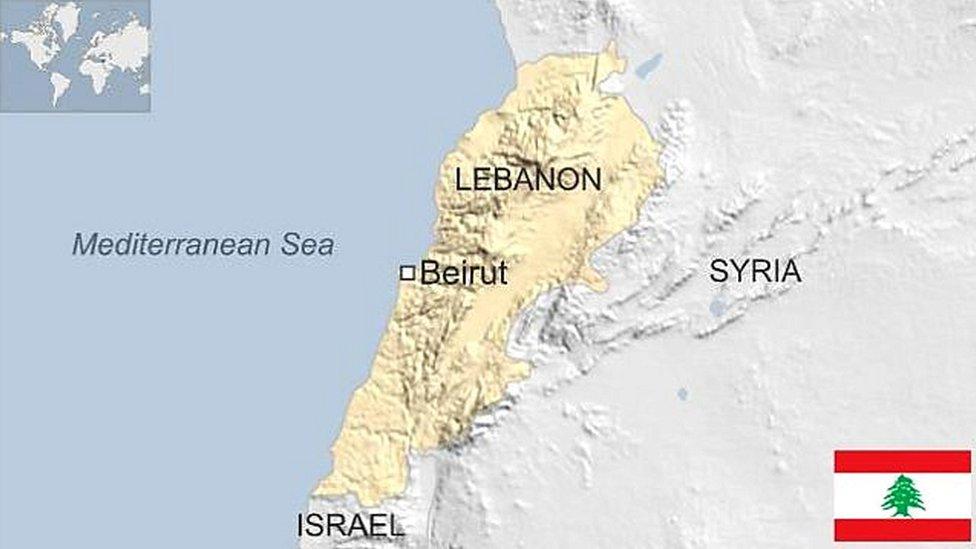Lebanese cabinet in emergency talks after Beirut bomb
- Published
Wissam al-Hassan was among eight people who died in the attack.
The Lebanese cabinet has been holding emergency talks a day after a powerful car bomb killed the head of internal intelligence and seven others.
PM Najib Mikati offered his resignation but has been asked to stay on by the president. Opposition leaders accused Syria of being behind the explosion.
The Syrian government has condemned the attack in the Lebanese capital Beirut.
Supporters of opposition leader Saad Hariri have been holding tyre-burning protests across the country.
A day of mourning is being held for those killed in the blast - in which 86 people were also wounded.
Damascus accused
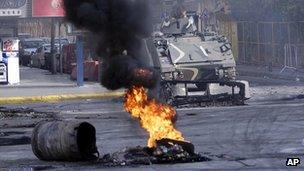
Saturday saw tyre-burning protests in Beirut and elsewhere
At a cabinet meeting on Saturday, Mr Mikati offered his resignation but President Michel Suleiman has asked him to stay on for a while.
Mr Mikati said he had agreed to remain in post in the national interest, adding that Lebanon needed to remain unified, strong and secure.
Friday's blast occurred in the mainly Christian district of Ashrafiya, in a busy street close to the headquarters of Mr Hariri's 14 March coalition.
The dead included internal intelligence head Wissam al-Hassan, who was close to Mr Hariri, a leading critic of the government in neighbouring Syria.
Mr Hassan led an investigation that implicated Damascus in the 2005 bombing that killed Mr Hariri's father, former Prime Minister Rafik Hariri.
He also recently organised the arrest of a former minister accused of planning a Syrian-sponsored bombing campaign in Lebanon.
His supporters have set up roadblocks around Lebanon's capital, while denouncing the Syrian president and his Lebanese allies.
There were also opposition protests in Sidon in the south, Tripoli in the north and the Bekaa Valley in the east.
'Guarantor of security'
Lebanon's religious communities are divided between those who support the government of Syrian President Bashar al-Assad - including many Shias - and those mostly from the Sunni community who back the rebels.
Tension in Lebanon has been rising as a result of the Syrian conflict.
"We accuse Bashar al-Assad of the assassination of Wissam al-Hassan, the guarantor of the security of the Lebanese," Mr Hariri said on Lebanese TV.
Druze leader Walid Jumblatt told satellite channel Al-Arabiya: "[Bashar al-Assad] is telling us that even though he turned Syria into rubble, 'I am ready to kill in any place.'"
Nadim Gemayel, an MP from the right-wing Christian Phalange Party, also pointed to Syria, where the 18-month old uprising against Mr Assad has turned increasingly violent.
"This regime, which is crumbling, is trying to export its conflict to Lebanon," he said.
Mr Hariri's 14 March bloc issued a statement accusing the Beirut government of protecting "criminals" and calling on it to stand down.
The force of Friday's blast, the worst in the Lebanese capital for four years, ripped balconies from the fronts of buildings and set many cars on fire.
Mr Mikati said the government was trying to identify the perpetrators and they would be punished.
Lebanon's Shia militant group Hezbollah - a close ally of the Syrian government - condemned the bombing.
Syrian Information Minister Omran al-Zoubi called it a "cowardly, terrorist act". He said such incidents were "unjustifiable wherever they occur".
UN Secretary General Ban Ki-moon called on "all Lebanese parties not to be provoked by this heinous terrorist act", while EU foreign policy chief Catherine Ashton called on "all Lebanese to remain calm".
US Secretary of State Hillary Clinton called the bombing a "dangerous sign that there are those who continue to seek to undermine Lebanon's stability."
- Published19 October 2012
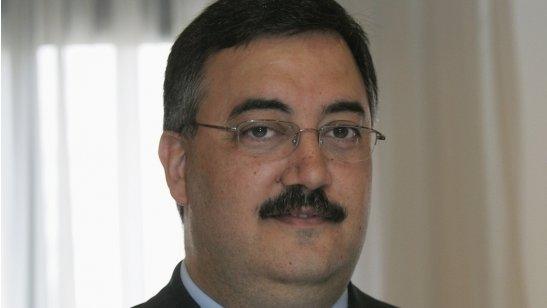
- Published20 October 2012
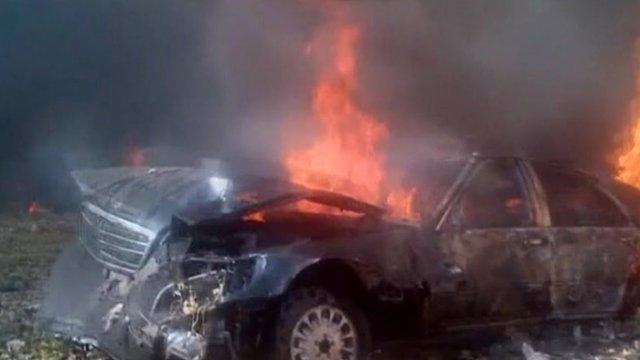
- Published22 September 2012
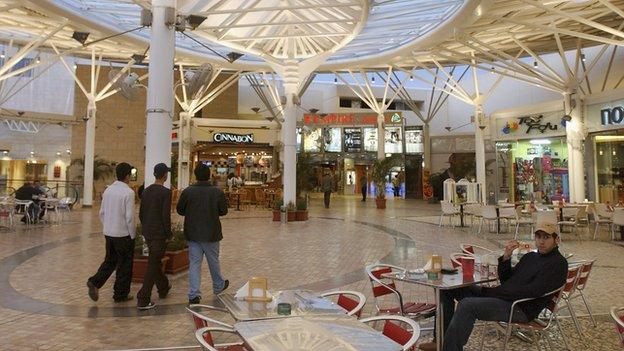
- Published10 January
